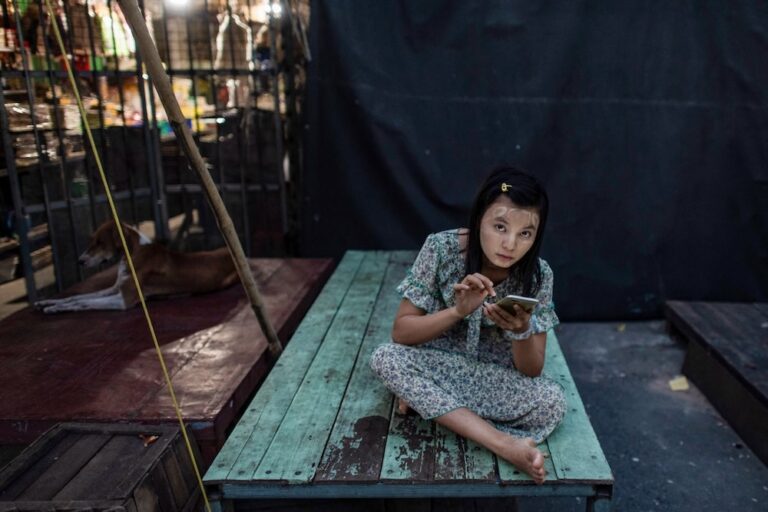(SEAPA/IFEX) – The following is a 25 October 2007 joint letter from 15 IFEX members and several other international organisations to United Nations officials: Ibrahim Gambari Special Adviser to the UN Secretary-General on Myanmar United Nations New York, NY USA Fax: +1212 963 0942 Paulo Sérgio Pinheiro, UN Special Rapporteur on the Situation of Human […]
(SEAPA/IFEX) – The following is a 25 October 2007 joint letter from 15 IFEX members and several other international organisations to United Nations officials:
Ibrahim Gambari
Special Adviser to the UN Secretary-General on Myanmar
United Nations
New York, NY USA
Fax: +1212 963 0942
Paulo Sérgio Pinheiro, UN Special Rapporteur on the Situation of Human Rights in Myanmar
United Nations
Geneva, Switzerland
Fax: +41 229179006
25 October 2007
Dear Ibrahim Gambari and Paulo Sérgio Pinheiro,
The International Freedom of Expression Exchange Network (IFEX) is a global network of media freedom advocates from around the world. Many of IFEX’s 81 members have been among those in the global community in condemning the recent violent events in Burma, and in monitoring the worsening human rights situation in the country.
At the IFEX General Meeting in Montevideo on 7 to 12 October, 20 IFEX members and partners formed a special Burma Action Group (BAG) to respond to the unfolding humanitarian crisis. As a network focused on press freedom, freedom of expression, and access to information, the Burma Action Group is particularly concerned over the death of journalists in the recent crackdown, the arrest and continued detention of members of the Burmese media, the reported suspension of private journals and newspapers in Yangon, and the Burmese government’s cutting of access to the Internet. We are also troubled by the apparent murder of Japanese freelance journalist Kenji Nagai at the hands of Burmese soldiers.
IFEX’s regional member the Southeast Asian Press Alliance (SEAPA), in the meantime, is also working closely with a crucial community of Burmese journalists now exiled in Thailand, India, and Bangladesh. Even the world’s biggest news agencies will acknowledge that it was these exiled news groups – through the online sites, blogs, and videos they helped maintain – who were the outside world’s main sources of the first-hand accounts, pictures, and images that have rightfully invited global outrage. And yet even outside of Burma, these exiled journalists are vulnerable. Most are without passports. Very few are officially recognised as refugees. Even prior to the crackdown of Burma, they were either the subjects of harassment from local government and police officials, or they were perennially caught in the geopolitics between Burma and its neighbours.
On behalf of members of the Burma Action Group, I am writing to you therefore, to express and implore that a concern for the conditions and environment of Burmese journalists both inside and outside the country be high and explicit on the agenda of any mission to Burma that you may take part in or have influence over.
Furthermore, we believe that it would be most important to urge the Burmese government to carry out a thorough investigation into the killing of Japanese APF photographer Kenji Nagai, who died on 27 September on the streets of Rangoon allegedly at the hand of Burmese troups. Impunity is a threat to the rule of law and, as such, a violation of Article 7 of the Universal Declaration of Human Rights.
UN High Commissioner for Human Rights Louise Arbour said it was important for the UN to establish the true scale of Burma’s bloody crackdown. A scan of the current media environment, we submit, should be part of any report for this purpose of truly understanding what went on in Burma over the past weeks.
It is crucial to generate a status report on the missing, killed and jailed journalists, Burma’s notorious censorship regime, how many journals are still operating, how many were shut down, and so on. A status report on people’s access to the Internet, too, would be vital.
IFEX members and partners would volunteer to help out with such reports. The network offers methodologies from past fact-finding missions to Nepal and Tunisia. Members of IFEX and the Burma Action Group are also ready to form/join a fact-finding team, should you deem it opportune, appropriate, and viable to accommodate our proposed agenda and our offer of help as part of, or parallel with, your/any UN mission to Burma.
Should you have any questions, clarifications, suggestions, or concerns regarding this letter, please feel free to contact me as the designated chairperson for the Burma Action Group.
Thank you for your attention in this matter.
Sincerely,
ROBY ALAMPAY
Executive Director
Burma Action Group members:
Cambodian Association for the Protection of Journalists
Canadian Journalists for Free Expression
Center for Human Rights and Democratic Studies, Nepal
Center for Media Freedom and Responsibility, Philippines
Centre for Independent Journalism, Malaysia
Citizen Lab, Canada
COMUNICA, Uruguay
Freedom House, USA
Index on Censorship, UK
International Federation of Journalists
International Media Support, Denmark
International Press Institute, Austria
Mizzima News, India
Norwegian PEN, Norway
Pakistan Press Foundation, Pakistan
Southeast Asian Press Alliance, Thailand
Union of Journalists, Solidarity Foundation Vikes, Finland
World Association of Newspapers, France
World Press Freedom Committee, USA
**For further information on the Nagai case, see IFEX alerts of 1 October, 28 and 27 September 2007; for other incidents during the current crackdown, see alerts of 23, 18, 17, 15, 12 and 11 October 2007, and others**


